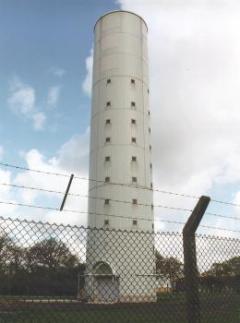CELTIC LEAGUE: BRITISH SPY TOWER BREACHED EUROPEAN CONVENTION

UK interception of communications law has been found to be in breach of European Human Rights Law. The determination was made in a case brought by three civil liberty bodies (The Irish Council for Civil Liberty, British Irish Rights Watch and Liberty).
The three groups alleged that their communications were tapped using a (now demolished) tower at Capenhurst in Cheshire.
The tower - described by the Ministry of Defence as an «electronic test facility» - intercepted phone calls carried by radio microwave between (amongst others) British Telecom relay stations at Gwaenysgor, Clywd, and Pale Heights, near Chester. The stations in Wales and Cheshire were a main conduit carrying Ireland's mtelecommunications mlinks through Britain.
The Celtic League first became aware of Britain's strange electronic msnooping around the Irish sea in the mid 1980s. At that time both civil and military communications traffic from Northern Ireland bizarrely was routed through the Irish Republic and across to North Wales. During the Eighties links were also constructed through the Isle of Man and across the North Channel to Scotland. Capenhurst was also constructed about this time and is believed to have come on stream in 1989/90 operated by a shadowy section of the RAF called the 'Radio Introduction Unit' (RIU). For some time it was believed that the purpose of the Tower was military and connected more to electronic surveillance traffic in the closing stages of the Cold War than domestic snooping. It is likely that the station did have such a dual function as its electronic capacity and capability seems to have been substantial.
Intercepts made at the station are believed to have been processed at GCHQ.
The European Court judgement is a significant landmark in challenging mthe boundaries that the State can push in relation to privacy.
The court held unanimously that the interception of communications without accessible safeguards constituted a violation of Article 8 (right to respect for private and family life and correspondence) of the European Convention on Human Rights.
Under Article 41 (just satisfaction) of the convention, the court considered that the finding of a violation constituted sufficient just satisfaction for any non-pecuniary damage caused to the applicants, and awarded them €7,500 for costs and expenses.
J B Moffatt Director of Information Celtic League
07/07/08
■